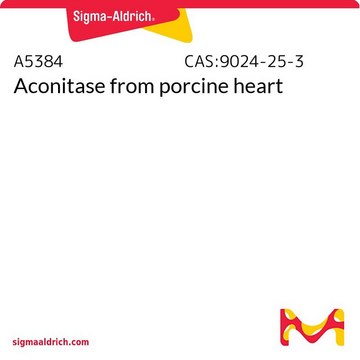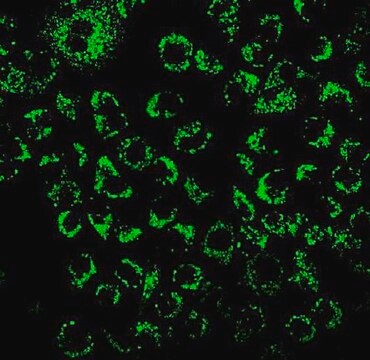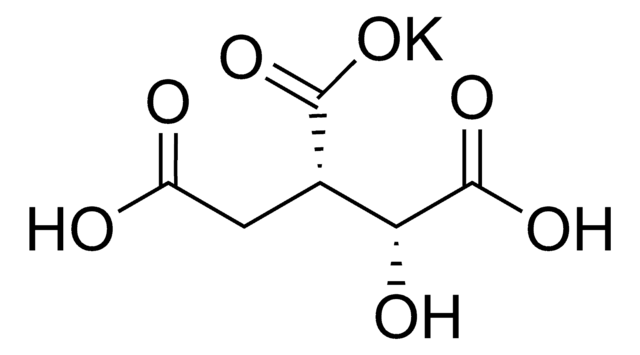MAK051
Aconitase Activity Assay Kit
sufficient for 100 colorimetric tests
Synonyme(s) :
Aconitase Enzyme Activity Kit
About This Item
Produits recommandés
Utilisation
sufficient for 100 colorimetric tests
Méthode de détection
colorimetric
Maladie(s) pertinente(s)
neurological disorders; cardiovascular diseases; cancer
Température de stockage
2-8°C
Informations sur le gène
human ... ACO1(48) , ACO2(50)
mouse ... ACO1(11428) , ACO2(11429)
rat ... ACO1(50655) , ACO2(79250)
Description générale
Application
Caractéristiques et avantages
Adéquation
Principe
Remplacé(e)(s) par
Mention d'avertissement
Danger
Mentions de danger
Classification des risques
Eye Dam. 1 - Resp. Sens. 1 - Skin Corr. 1B
Code de la classe de stockage
8A - Combustible corrosive hazardous materials
Certificats d'analyse (COA)
Recherchez un Certificats d'analyse (COA) en saisissant le numéro de lot du produit. Les numéros de lot figurent sur l'étiquette du produit après les mots "Lot" ou "Batch".
Déjà en possession de ce produit ?
Retrouvez la documentation relative aux produits que vous avez récemment achetés dans la Bibliothèque de documents.
Les clients ont également consulté
Notre équipe de scientifiques dispose d'une expérience dans tous les secteurs de la recherche, notamment en sciences de la vie, science des matériaux, synthèse chimique, chromatographie, analyse et dans de nombreux autres domaines..
Contacter notre Service technique

![N-{3-[(dimethylamino)methyl]-4-hydroxyphenyl}acetamide hydrochloride AldrichCPR](/deepweb/assets/sigmaaldrich/product/structures/190/657/3b6fd47c-0fde-47d5-aecf-45fcad0ad5bd/640/3b6fd47c-0fde-47d5-aecf-45fcad0ad5bd.png)




